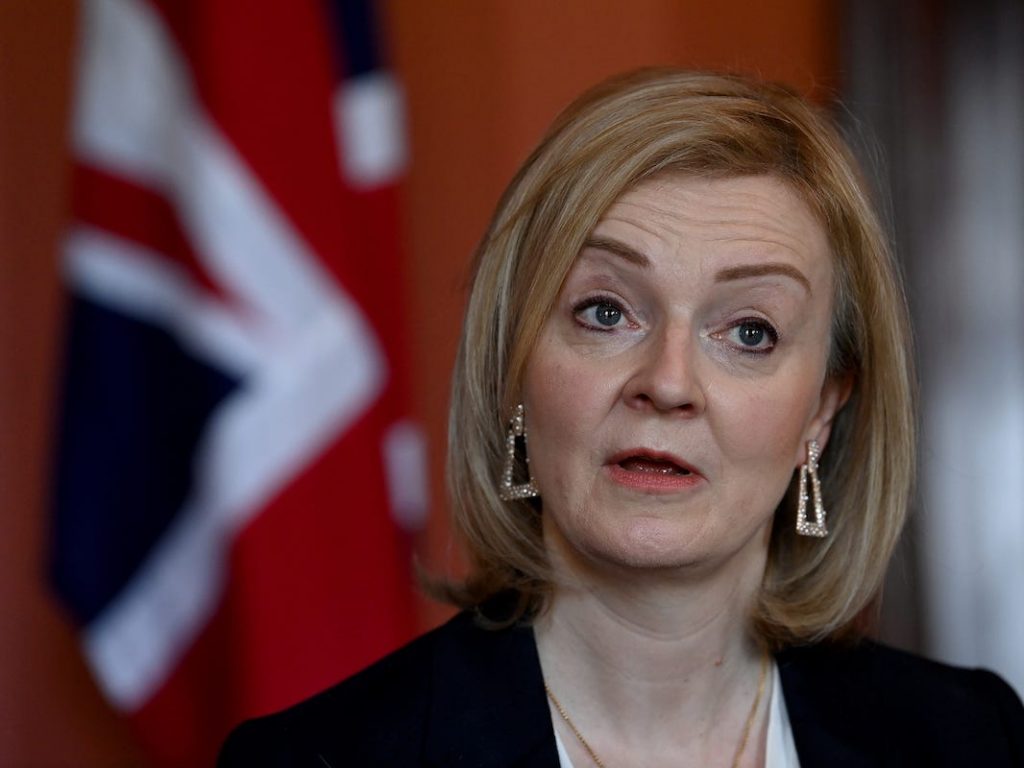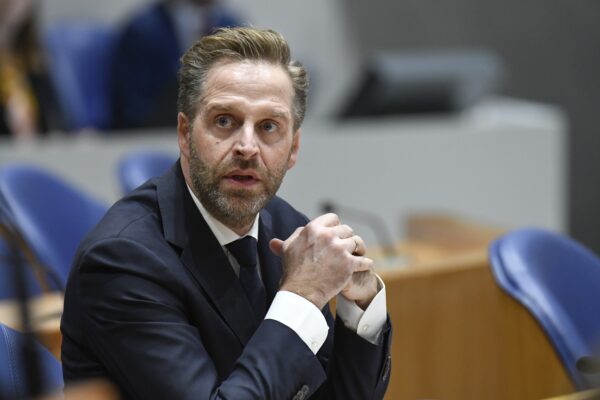- Liz Truss unveils plans for 'new revised protocol', with a new bill due to be introduced in weeks.
- The Foreign Secretary told MPs the government was "very clear this is legal in international law".
- Labour said such a move would cause other countries to questions to UK's ability to keep its word.
Liz Truss set out plans Tuesday for a bill to create "a new revised protocol" in the next few weeks, less than three years after the UK agreed the Northern Ireland protocol with the EU.
The Foreign Secretary told MPs that the UK would prefer to negotiate a new version of the protocol, but that the difficult post-pandemic economy meant that it was prepared to act alone to get a faster result.
"Our intention is to introduce legislation in the coming weeks to make changes to the protocol," Truss said. "Our preference remains a negotiated settlement, and we remain open to further talks if we can achieve the same outcome."
She said she had invited the EU's chief negotiator, Maros Sefcovic, to London to discuss this "as soon as possible." She said that prior talks had failed to yield a solution because Brussels' mandate does not allow for the protocol to be reopened.
"We are clear there is a necessity to act to ensure institutions can be restored as soon as possible," she added.
The legislation would have the "explicit power to give effect to a new revised protocol", to "ensure parity of esteem and the protection of economic rights", Truss said.
But Stephen Doughty, Labour's shadow foreign affairs minister, said Truss needed to "set out clearly to the House why this doesn't break international law".
He accepted the "excessive burdens" faced by businesses exporting goods from Britain to Northern Ireland, noting this risked undermining consent in the region.
But he called for "calm heads and responsible leadership", saying that moving unilaterally risked causing a "downward spiral in our relationship with the EU" and could lead other countries to "question whether we can keep our end of the bargain".
Doughty said: "It is deeply troubling for the Foreign Secretary to be proposing a bill that would apparently break a treaty that the government itself signed just two years ago. That will not resolve issues in Northern Ireland in the long term and rather it would undermine trust and make a breakthrough more difficult."
Responding, Truss said the government was "very clear this is legal in international law and we will be setting out our legal position in due course".
Insider recently revealed that Suella Braverman, the attorney general who recently told Johnson to suspend "disloyal" MPs, had given the bill her legal backing.
Colum Eastwood, leader of the Northern Ireland's SDLP, also warned about the legality of the move, saying: "It's a very simple question - how can any international partner or any citizen of the north of Ireland ever trust this government again?"
Tory MPs also raised concerns about law-breaking.
Simon Hoare, the chairman of the Northern Ireland committee, said it was "extraordinary" that the government needed to be reminded of the need to uphold the law.
Truss was speaking to MPs after the strategy was signed off at a Global Britain meeting earlier in the morning.
She also updated the Cabinet, alongside Boris Johnson, who told ministers that "it was clear all five parties in Northern Ireland wanted changes to how the protocol was currently operating".
Johnson visited Belfast on Monday to meet the main party leaders there, including those of the DUP and Sinn Fein.
During his visit, Johnson gave a glimpse of some of the UK's plans, saying: "We would love this to be done in a consensual way with our friends and partners, ironing out the problems, stopping some of these barriers east-west.
"But to get that done, to have the insurance, we need to proceed with a legislative solution as well."
DUP's leader Sir Jeffrey Donaldson, who sits in parliament as an MP, said the UK government's plans were "a welcome if well overdue step", and urged Truss to bring forward legislation "in days and weeks, not months".










